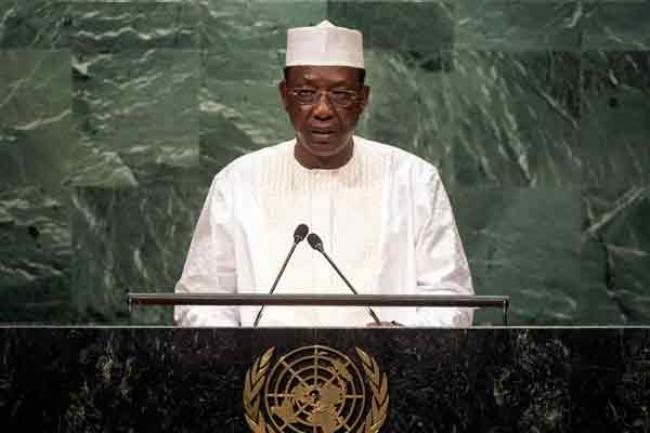Just Earth News 21 Sep 2016, 05:45 am Print

Cia Pak
He went on to cite the growing number of refugees and displaced persons worldwide, deadly shipwrecks of makeshift vessels in the Mediterranean, the tragedy in Syria “which continues to unfold before our eyes,” as but a few of the tangible examples of “how powerless we have all become.” In all of this, the African continent is the most vulnerable; the most exposed. Indeed, Africa is on Tuesday bearing the full brunt of terrorism: “the threat of the century.”
“Somalia, Libya, Mali, the Lake Chad basin, the Sahel as a whole, have all been seriously destabilized and the danger is threatening to spread throughout the entire continent,” said Déby, underscoring that the African Union (AU) and its member countries have galvanized to fight this absolute evil,” as evidenced by the sacrifices made by the African Union Mission in Somalia (AMISOM) and the establishment of the Joint Multinational Force by States in the Lake Chad basin and Benin to take on Boko Haram in that region.
“These examples of mobilization and cooperation should be supported and strengthened by the entire international community,” he continued, saying such support should be materiel, financial, military and information-sharing assistance. In this regard, he made a special appeal to UN Member States, especially Africa’s main partners, to make contributions to the African Counter-terrorism Fund that had been established at the most recent AU Summit in Kigali, Rwanda.
He went on to say that Africa has also made enormous efforts to manage the crisis and conflicts on the continent through promotion of a regional conflict resolution strategy, underpinned by the AU peace and security architecture. This approach should be supported by the wider international community and should, among other aims, focus on bolstering the capacity of regional actors, which are better suited to quickly and more knowledgably addressing local issues and crises.
Turning to specific issues, Déby said the situation in the Central African Republic remains precarious, adding that, as armed clashes continued in that country, the Government needs support for its efforts to normalize the situation. He urged the political players there and in other countries, such as Burundi and Gabon, to engage in dialogue. Regarding South Sudan, he said a political solution must be found through direct negotiations with the parties to the conflict.
With more than a billion men and women, Africa is working towards advancing development, he said. However, eradicating poverty “will be possible only if actors keep their promises”. In order to eliminate extreme poverty, strengthen resilience and promote sustainable economic growth, Africa must have the necessary resources, he said. The continent is ready to play its part as no region and no State could prosper on its own. Climate change and environmental issues are among the major challenges, he said, warning that ecological disaster dangerously threatens food security and stability in the region.
- IDF strikes Hezbollah targets in Lebanon after projectile fire toward Northern Israel; 31 killed
- Pakistan: Armed gunmen kidnap 14 workers during coordinated raids in Balochistan
- ISIS-inspired plot foiled in UK: Two men get life sentences for targeting Jewish community
- India rejects allegations, urges Pakistan to tackle its ‘home-grown ills’
- Massacre in Islamabad: ISIS takes responsibility for deadly Pakistan blast





-1763561110.jpg)
